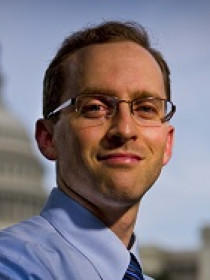
Benjamin D. Sommers
Connect with Benjamin
About Benjamin
Sommers is a health economist and a practicing primary care doctor. His work focuses on health coverage and access to care, especially for low-income Americans. His research examines important policy issues related to Medicaid, private health insurance, the Affordable Care Act, and the health care safety net. Since 2011, he has also served as an advisor to the U.S. Department of Health and Human Services, in the Office of the Assistant Secretary for Planning and Evaluation.
Contributions
Health Reform So Far – Major Gains in Coverage and Access
In the News
Publications
Presents how Texas is one of nearly 20 states yet to expand its Medicaid program under the Affordable Care Act (ACA), and is home to the largest number of uninsured Americans of any state in the country. Argues that ongoing efforts from stakeholders and consumer groups to persuade state leaders to expand coverage have significant implications for the well-being of millions of low-income adults in Texas.